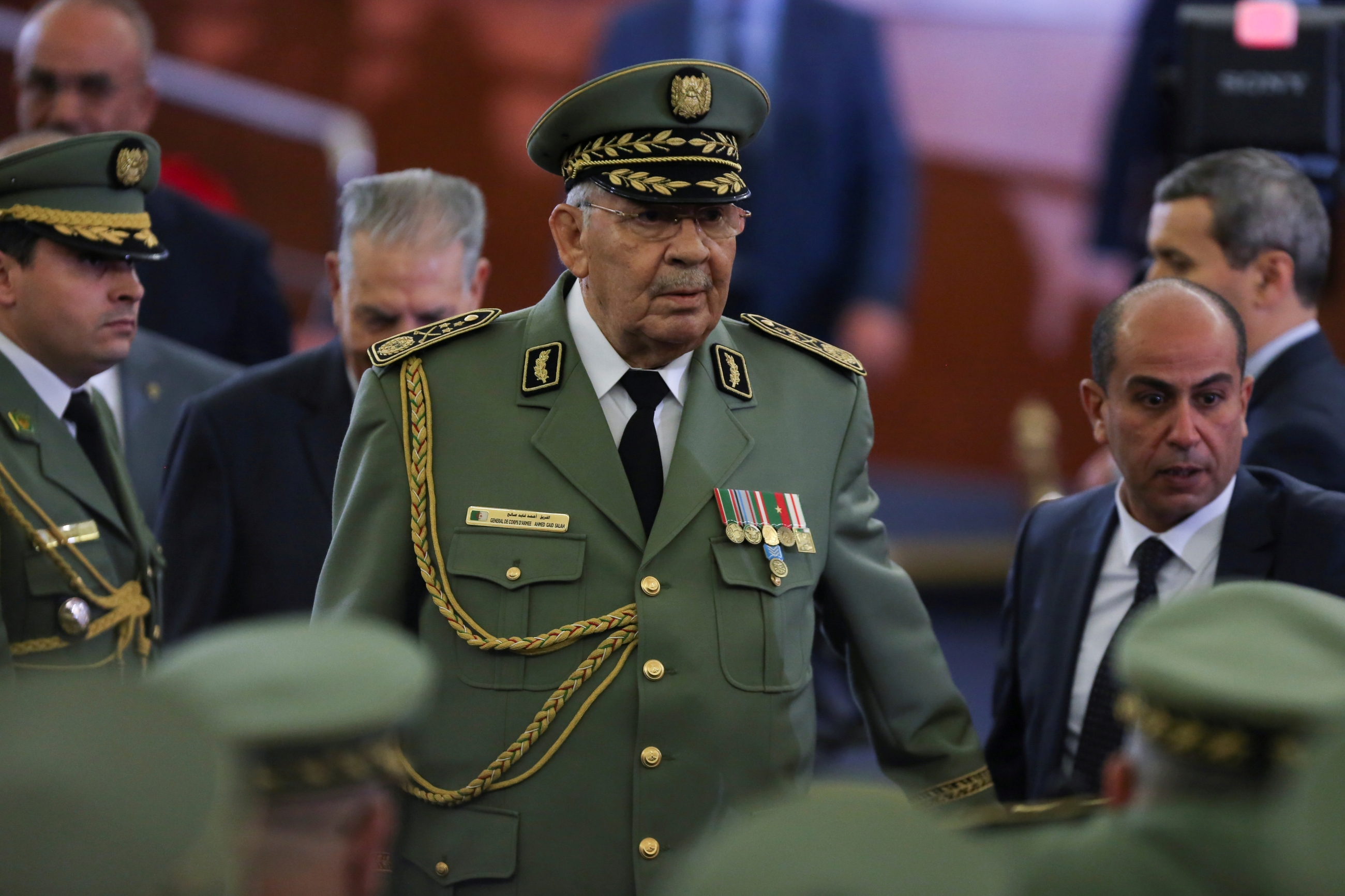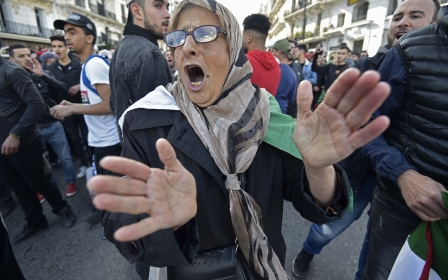Algeria's powerful army chief Ahmed Gaid Salah dies

Algeria's powerful army chief Ahmed Gaid Salah has died, leaving behind a country wracked by months of protests over the military's dominant role in politics.
State media reported on Monday that Gaid Salah, who masterminded the state's response to mass protests this year, died at the age of 79 after suffering a heart attack at a military hospital in the capital Algiers.
'The army is the most disciplined institution and Gaid Salah's death could threaten its cohesion,'
- Zine Labidine Ghebouli, Algeria analyst
"The deputy defence minister and chief of staff of the army died Monday morning of a heart attack," the presidency said in a statement.
Gaid Salah's death comes as anti-government protests calling for a complete overhaul of the political system continue across the country.
His death also comes just days after Algeria's newly elected President Abdelmadjid Tebboune and the army's preferred candidate was sworn into office.
New MEE newsletter: Jerusalem Dispatch
Sign up to get the latest insights and analysis on Israel-Palestine, alongside Turkey Unpacked and other MEE newsletters
Tebboune, who was pictured embracing Gaid Salah during his inauguration, declared three days of national mourning for the army chief.
He also announced that the head of land forces, General Said Chengriha, would take over as acting chief of staff.
Chengriha, 74, is from the same generation of powerful generals as Gaid Salah, with both men having started their careers in the guerrilla forces that rose up against French colonial rule.
Hirak vs The power
Gaid Salah, who served as army chief of staff for more than a decade, had often been regarded as the guardian of the military-dominated political system.
The strongman had supported Abdelaziz Bouteflika for years until the former president announced earlier this year that he would run for re-election.
Bouteflika, who suffered a stroke in 2013 which left him confined to a wheelchair and barely able to speak, was the only real candidate in the election scheduled for mid-April.
Amid widespread protests, Gaid Salah called on Bouteflika to resign in early April. Bouteflika quit the same day, leaving the armed forces chief effectively in charge of the North African country.
The army then backed a series of arrests of Bouteflika allies and senior businessmen in an anti-corruption campaign that was widely seen as a purge of the military's rivals within the ruling system.
But it was not enough to appease the protesters, many of whom had begun calling for Gaid Salah's resignation. One constant chant throughout the protests was for "A civilian state, not a military state".
Since then, the country has witnessed 10 months of near-daily protests, with the leaderless anti-government protest movement known as "Hirak," rallying against a shadowy network of military, security and political officials, known as le pouvoir or "the power".
'One step closer to achieving their goals'
Analysts told Middle East Eye that Gaid Salah's passing couldn't have come at a worse time for the military and could threaten to unravel it.
"His death will change the power dynamics within the system and start a succession process that is way more delicate and risky than the succession of Bouteflika," Zine Labidine Ghebouli, an Algeria analyst and contributor at the Washington Institute for Near East Policy, told MEE.
"At the end of the day, the army is the most disciplined institution and Gaid Salah's death could threaten its cohesion."
Though the protesters wanted Gaed Salah to step down and the army to walk away from politics, some prominent figures in their movement applauded the military's decision not to violently crush their demonstrations.
"Imagine we had former Major-General Khaled Nezzar or former Major-General Mohamed Lamari instead of Gaid Salah, we would all be dead by now," said one Algerian Facebook user. "Just for this reason, I'll say 'rest in peace'."
"[Gaid Salah] kept his promise to save the blood of Algerians during a tough period," said Islam Benatia, a prominent figure in the protest movement.
Ghebouli. the political analyst, added that Ghaid Salah's death could empower the protest movement and lead to a political settlement.
"The movement will certainly get empowered as Algerians will feel they are one step closer to achieving their goals," he said.
"I think ... we are about to see a new strategy of the movement as it will probably engage ... with the authorities especially if the acting chief of staff takes a pro-change stand and avoids any provocation with the Hirak movement."
Middle East Eye delivers independent and unrivalled coverage and analysis of the Middle East, North Africa and beyond. To learn more about republishing this content and the associated fees, please fill out this form. More about MEE can be found here.




